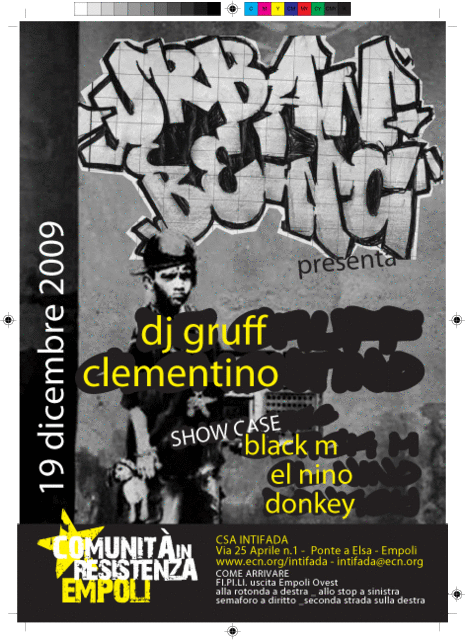Vinyl has been eliminated
‘Vinyl has been eliminated’
In Jamaica, seven-inch singles are completely extinct; DJs have ditched
their turntables. Will the digital revolution mean the end of
traditional reggae?
Dave Stelfox
The Guardian, Friday 18 January 2008
Reggae’s already had one digital revolution. On the night of
February 23, 1985, at a packed venue on Waltham Park Road in Kingston,
Jamaica, the producer Lloyd "Prince Jammy" James used a soundclash
against the Black Scorpio Sound System to unleash the song that changed
Jamaican music forever. Wayne Smith’s Under Mi Sleng Teng was based on
a stripped-down Casio keyboard loop, with a thunderous computerised
bassline. It was the first wholly electronic reggae recording, and its
distinctive rhythm marked the birth of the style that came to be known
as dancehall.
Now Jamaican music is in the midst of a second, further-reaching
technological revolution. This time it’s not how reggae sounds that’s
being turned inside out, but how it’s being consumed. In a strange
anachronism, reggae has long offered groundbreaking music – its
experimental impulses explored through roots, dancehall and dub – but
for the past two decades that music has been dependent for exposure on
what, in most of the rest of the world, is considered the preserve of
collectors only: the seven-inch single. For years Jamaica has been the
world’s most prolific manufacturer of vinyl, with antiquated pressing
plants working full tilt to keep up with the warp-speed productivity of
Kingston’s studio system. However, over the past year fans have noticed
a startling drop in the availability of new music on hard-copy formats.
"The reduction in vinyl production in the West Indies has
dramatically affected the way I access music," explains the legendary
DJ – or selector – David Rodigan, host of the weekly Rodigan’s Reggae
show on London’s Kiss 100 FM. "In a nutshell, vinyl has been eliminated
by the people who play the music to the public. The key players – and
by that I mean the sound system selectors that people go to see every
weekend, who can make or break a song – are no longer dealing with it
in any shape or form and have all switched to CD. Now if someone wants
to send me a song, they just email it to me as an MP3. This process has
been gradual, but it’s now absolute."
The slump in vinyl releases actually turns out to be more or less
irrelevant to the industry’s health on home turf. As Rodigan says: "The
domestic Jamaican market for singles has been negligible for quite some
time. Turntables are no longer available there and the home audience
buys sound system mixtapes and DVDs of live shows and dances instead.
Then there’s the matter of piracy, meaning that people can now purchase
burned CDRs of new music on the streets at a fraction of the price that
legitimate releases would command. It’s a reflection of the economic
realities in Jamaica that the emotional motivations of overseas
collectors have for years propped up vinyl manufacture. Particularly in
Europe, people still want to own reggae in that form because it helps
them connect to the music’s original roots and culture. Now that’s
coming to an end, though."
A better gauge of the health of reggae, however, is the demise of
another phenomenon specific to Jamaican music. After recording a new
backing track, reggae producers have traditionally asked several
different singers to record their own vocal interpretations of the tune
– so each could be released, and the producer would be able to make as
much money as possible out of each studio session. That process, known
as "voicing", was then followed by each version being released as a
separate single. The more popular the instrumental proved, the more
songs were cut. With each new production averaging around 20 different
versions, labels such as London’s Greensleeves and New York’s VP
Records began to collect these songs on individual "riddim albums", a
signature format that became pivotal to reggae’s international
infrastructure – until now.
Dan Kuster, Greensleeves’ head of A&R, says things are changing
fast. "We’ve scaled back our release of dancehall riddim albums because
they don’t sell any more," he says. "Reggae is in a period of
transition and the way people consume music has undergone huge shifts
lately. It used to be that producers cut test pressings of new music to
give to sound systems and radio DJs, then, if the songs received a good
reaction, they’d be released as proper singles. Now, with everyone
playing from CD, it’s much easier and quicker for people to burn a copy
of their work and pass it directly to the guy they want to play it.
"It’s got to the point that when producers say that a song has been
released in Jamaica, they don’t actually mean that it’s been pressed.
They just mean that it’s being played. In fact, a vast amount of music
never sees a conventional release at all now. While seven-inches have
mainly been an export business since the early 1990s, they still
functioned as a valuable barometer of a tune’s popularity and were
difficult to duplicate, too. Now, as soon as a song is in someone’s
hands it can be copied and sold in Jamaica in days and, thanks to
peer-to-peer platforms and certain pirate websites I’d rather not name,
all over the rest of the world in a matter of hours. By the time we get
to put a riddim album out, everyone has it already, so it’s not
worthwhile. Also, while the older people who listen to roots reggae may
still want to own music, dancehall is pop music with a young audience
that, typically, just wants to be able to hear it and is not concerned
with being able to hold the actual record."
That is a problem faced by record companies around the world, but
its impact on reggae is more immediate. There’s no legitimate domestic
market – and increasingly there’s no international market, either,
thanks to illegal downloads. But in Jamaica, it’s not the artists who
are suffering.
When voicing a riddim, artists are usually paid a flat fee by
producers, not royalties, regardless of how well their song sells.
Instead they make their fortunes from live performances and the
recording of dubplates – custom versions of big hits calling out the
name of a specific selector or sound system that are then played at
dances or competitive sound clashes. The more in demand the artist or
song, the more these dubplates cost, and with professional DJ teams
around the world hungry for exclusive tracks, it’s a lucrative trade
for top-tier performers. It is, in fact, the producers who are finding
themselves cut out of reggae’s economic loop.
"The people behind the scenes are the ones who are really feeling
it," says Jeremy Harding, head of Kingston’s 2 Hard record label. "The
artists aren’t noticing any change at all. They can still get paid well
for performing and cutting dubs, but Jamaican producers have always
been responsible for generating their own income. It’s not like
hip-hop, where someone like Timbaland is paid thousands of dollars for
a beat. We actually pay people to feature on our music. For a long time
producers made their money from singles sales and overseas licensing if
a tune got big, but the riddim albums really kept the scene afloat. Now
that’s finished, people don’t know what to do."
Kuster is cautiously optimistic, and takes a pragmatic view of the
downturn in Jamaican musical production. "No one wants see this
industry in decline," he says. "But the one good thing is that the days
of ridiculous amounts of versions of mediocre rhythm tracks are at an
end. No one needs 20 versions of one tune because, of those 20 songs,
people probably only ever wanted to hear five or six anyway. Now, with
fewer voicings being made, a lot of substandard material has been cut
out. The way ahead now is to concentrate on the value of individual
songs and place emphasis on quality over quantity."
Harding agrees, likening the forces bearing down on reggae to those
of natural selection. However, he also sees opportunities for growth.
"To get by, people are going to have to be smart," he says. "They will
have to take a longer-term view and this can be done by paying
attention to things like artist development." As the manager of
dancehall superstar Sean Paul and a number of rising producers,
including Craig "Leftside" Parks, he speaks with authority. "From now
on, we will see music makers looking into alternative revenue streams,
investing more heavily in individual performers, building ongoing
relationships with them, and crossing over into management roles."
Should any music be able to weather such a storm, it’s reggae. If
nothing else, its largely informal economy allows it to adapt much
faster than the major labels in the US or Europe. In fact, as Harding
points out, attitudes and expectations are already beginning to alter
on the island. "People are starting to think differently. They’re
realising that they can’t rely on easy money any more and taking steps
to change the way they work," he continues. "Whatever happens, though,
reggae and dancehall will never go away. This is our culture so, as
long as new generations of artists keep coming through and people want
to dance to it, it will always have a future."
http://www.guardian.co.uk/music/2008/jan/18/urban.popandrock1/print
———–
immagini tratte dal libro "Dancehall. The rise of jamaican dancehall culture" edito da Soul Jazz Records













